Alright – so today we’ve got the honor of introducing you to Jeff Greenleaf. We think you’ll enjoy our conversation, we’ve shared it below.
Jeff, thanks for taking the time to share your stories with us today Do you think your parents have had a meaningful impact on you and your journey?
I grew up in the mean streets of Malibu. Back in the 1980s, Malibu actually had violent surf gangs and plenty of other ways kids could easily find trouble. My parents kept me off the streets with years of music lessons. After playing the trombone all through elementary and middle school, I found the old fashioned marches of concert band difficult to identify with. By high school, I had traded in the horn for an electric guitar. All the years of music theory, playing with other musicians, and performing led to a smooth transition. I already had the basic tools and experience needed to become a guitarist and, ultimately, a songwriter. Throughout high school, I also took weekly harmonica lessons at McCabes Guitar Shop in Santa Monica. I studied with Dave Gage, a harmonica virtuoso, whose playing had already been featured in numerous TV shows and commercials. I had always wondered how it would feel to have music on a TV show, but it seemed so far out of reach. Having any kind of career in the music industry seemed out of reach, but that didn’t keep me from trying. Music lived in my blood and that wasn’t ever going to change.
From the beginning, music has been the cornerstone of my family. In 1969, my father played the trombone in the United Stated Army Reserve Band; entertaining the troops, boosting morale, and adding dignity to military ceremonies. They performed all over Southern California as both a marching band and as a dance band. Thankfully, his musical talent kept him far away from terror of the Vietnam War. My mother is also an accomplished classical pianist and sings with the Malibu Senior Choir. My grandfather, Samuel Cooperman, was an extremely talented pianist, violinist, and mandolin player. He founded the Santa Monica Mandolin Orchestra in 1978. The orchestra performed at county parks, senior citizens’ homes, and activity centers throughout the southland. Recently, I was able to restore some of his vintage mandolins, with the help of the luthiers at McCabes Guitar Shop and Eric’s Guitar Shop (Sound City Studios). Without the rich musical history of my family (and their constant support), my journey into the music business certainly would have been short lived.
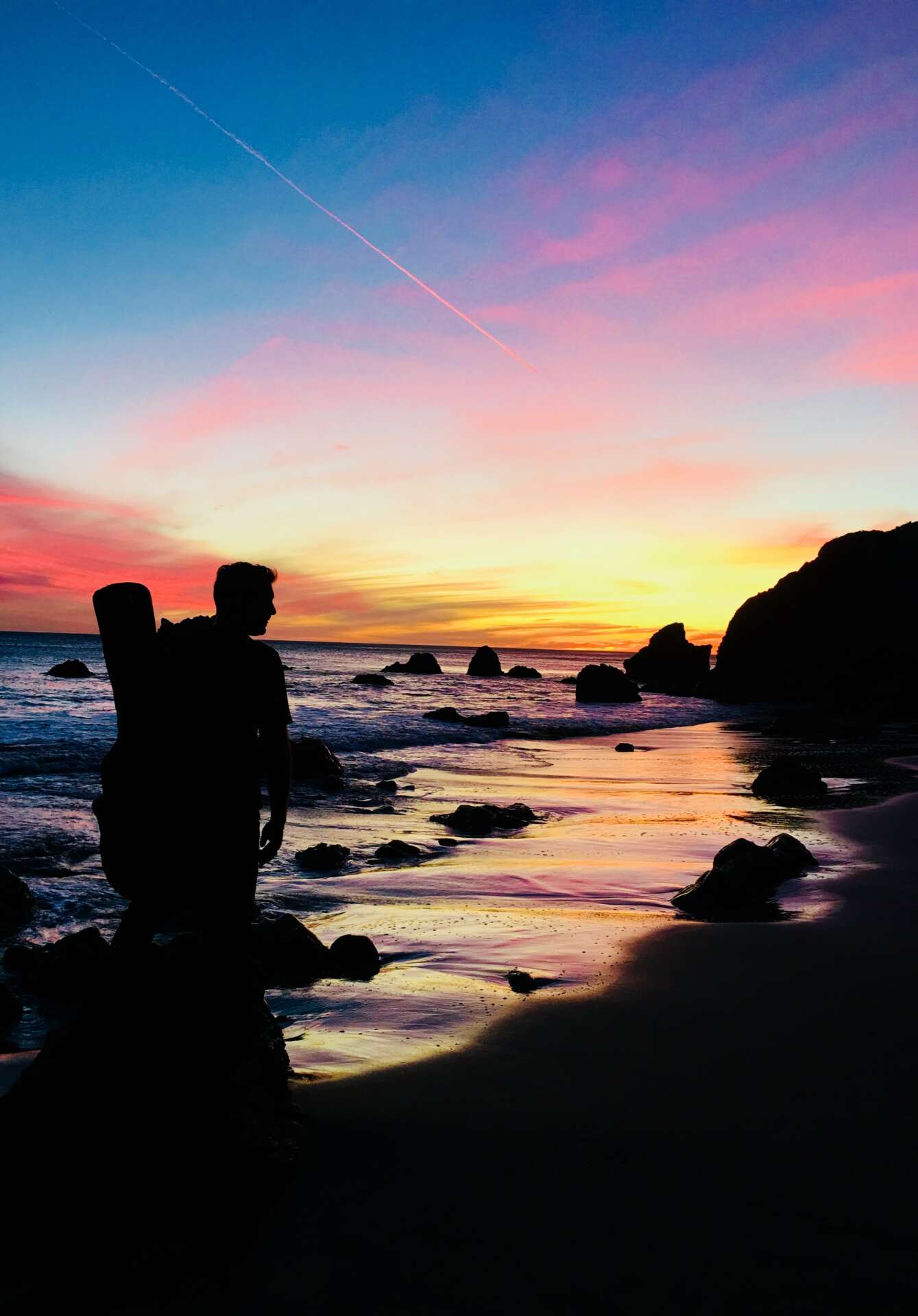
Awesome – so before we get into the rest of our questions, can you briefly introduce yourself to our readers.
First and foremost, I’m a songwriter and composer. I’ve been fortunate to have my music featured on nearly 400 TV shows. Most of this music is considered either source music (diegetic music) or non-source music (non-diegetic music). An example of source music in a scene is when a song plays from a jukebox in a cafe or coming from the car stereo speakers. It’s music the characters can hear and react to. Non-source music is something only the audience can hear and is meant to enhance the emotion of the scene. It’s always exciting to hear my music on a TV show and, more often than not, it makes the scene better. After playing guitar and harmonica in various rock bands throughout high school (Santa Monica High School), I started performing as a solo acoustic artist around the UC Santa Barbara music scene. In the early 1990s, Santa Barbara had a vibrant music scene where many young artists cut their teeth and became hit acts (Jack Johnson, Toad The Wet Sprocket, Ugly Kid Joe, Dishwalla). The talent in the college beach town of Isla Vista was overwhelming and I didn’t have many original songs or even a confident voice at the time. I performed at campus events, parties, and coffee shops around Isla Vista. After a few years at UCSB, I re-focused onto my studies and eventually earned a bachelor’s degree in Anthropology, minoring in Ethnomusicology. While I enjoyed studying/playing World music, I didn’t see myself having a career in this field. After volunteering with different groups of children, I decided to become a teacher of the blind and visually impaired. I received my master’s degree at SFSU, after two years of wearing a blindfold while crossing busy San Francisco streets and learning to read and write braille. I taught young blind musicians to read their sheet music in braille and become more independent within their classroom and outdoor environment.
I continued writing music and, thanks to the stability of a teacher career, was able to build a small recording studio. I released a few albums of mediocre material and I enlisted the help of TAXI A&R (a song-pitching service based in Calabasas). TAXI gave me incredibly honest feedback about my recordings and educated me about what the industry was looking for at the moment and how to go about getting there. The moment was 2007 and reality TV/unscripted television was relatively new and more popular than ever. TAXI had clients working on these shows who needed broadcast quality background music (source and non-source music) right away. I hit the ground running; writing and recording music in all genres. If I didn’t necessarily like the genre they were asking for, I would learn more about the production aspects of the notable hit songs and recreate the vibe in a way that meant something to me. After over a year of working around the clock, I signed a music publishing/licensing deal for over 100 songs. My catalog currently has over 2,000 songs signed to five Los Angeles publishing companies working with TV, film, and advertising.
I write emotional music in all styles. It’s music that could amplify the emotion of a variety of scenes. This can range from tension, optimism, sadness, nostalgia, fear, to love and joy. Lyrically, I tend to stick to broad topics such as relationships; falling in love, missing someone/loss, reflecting on the past in a dreamlike way. I think my professionalism and laser focus sets me apart from others. My clients know they can rely on me for a quick response and quality finished work. The music business moves fast and there are plenty of TV composers who I’m in direct competition with. Many of them are my good friends. I like to get my music in front of the people who need it quickly.
I’m proud that I’m able to perform my music around LA after so many years away from the stage. I recently headlined the world famous Whisky a Go-Go, something I never thought would happen in a million years. In December, I will be back at The Whisky opening for hit 80s group Missing Persons. I’ve also been performing somewhat regularly at the iconic Viper Room. It’s wonderful to see my parents (now pushing 80 years old) in the audience, still supporting me out on the Sunset Strip. I also play lead guitar in Grateful Wolf, a tribute to the Grateful Dead. Between the two groups, I’m out performing quite frequently.

Are there any resources you wish you knew about earlier in your creative journey?
If I had learned about TAXI A&R earlier, it would have given me better direction. Like many young artists, my early songwriting and finished productions were somewhat one-dimensional. Most of the recordings lacked important songwriting strategies like using unexpected melodies, thoughtful arrangements, lyrical color and contrast. I would release music because it simply sounded good, without much thought to the listener. When I started going to TAXI’s free yearly convention in 2008, I took classes and attended songwriting workshops. I learned about writing melodic hooks for vocal and instrumental parts. I had the opportunity to meet and learn from hit songwriters and producers. I met music supervisors and publishers who were looking for hungry new composers. Through the TAXI convention (Road Rally), I was able to sign a composer deal writing music for the number one daytime talk show at the time. This was a giant opportunity and gave me some real momentum in the industry. I have attended every Road Rally since then, continuing to learn and network at the event.


What’s the most rewarding aspect of being a creative in your experience?
“An intellectual says a simple thing in a hard way. An artist says a hard thing in a simple way.” -Charles Bukowski
I love this quote because it feels so true to me. I believe this is the difference between a non-creative and a creative. Being an artist is such a gift, whether one is successful or not. For art (music in particular) I try not to define success in monetary terms. Writing one little instrumental piece that gets used on a popular TV show certainly won’t make you rich. However, if your goal is to have your music heard by millions of people (whether it’s buried underneath dialogue or not), it would be considered a big success. If your goal is to perform on a world famous stage (such as the Whisky a Go-Go or The Viper Room), it really doesn’t matter if you make (or even lose) money on the endeavor. It’s everything else you get from the experience that is priceless. From working with top LA concert promoters (Tyler Porterfield/Kelly McGarry), excellent sound engineers, talented stage lighting designers, seasoned venue staff, to connecting with audiences through shaping a musical moment. I’m so grateful for all the opportunities that being a creative in LA has offered me.
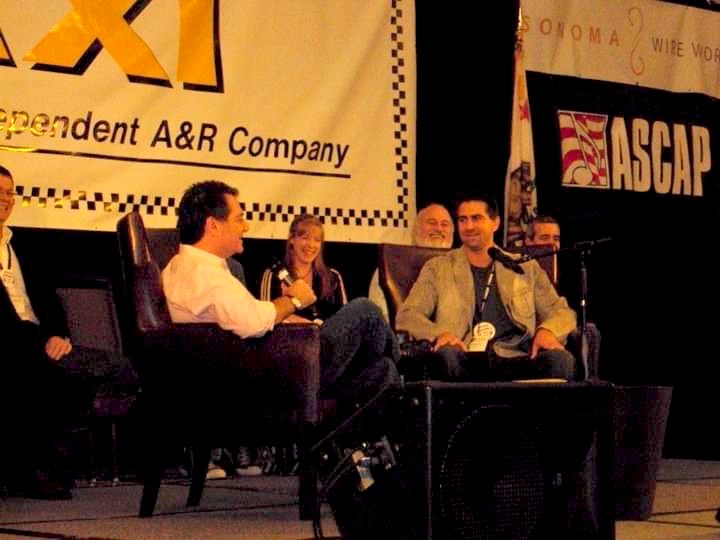
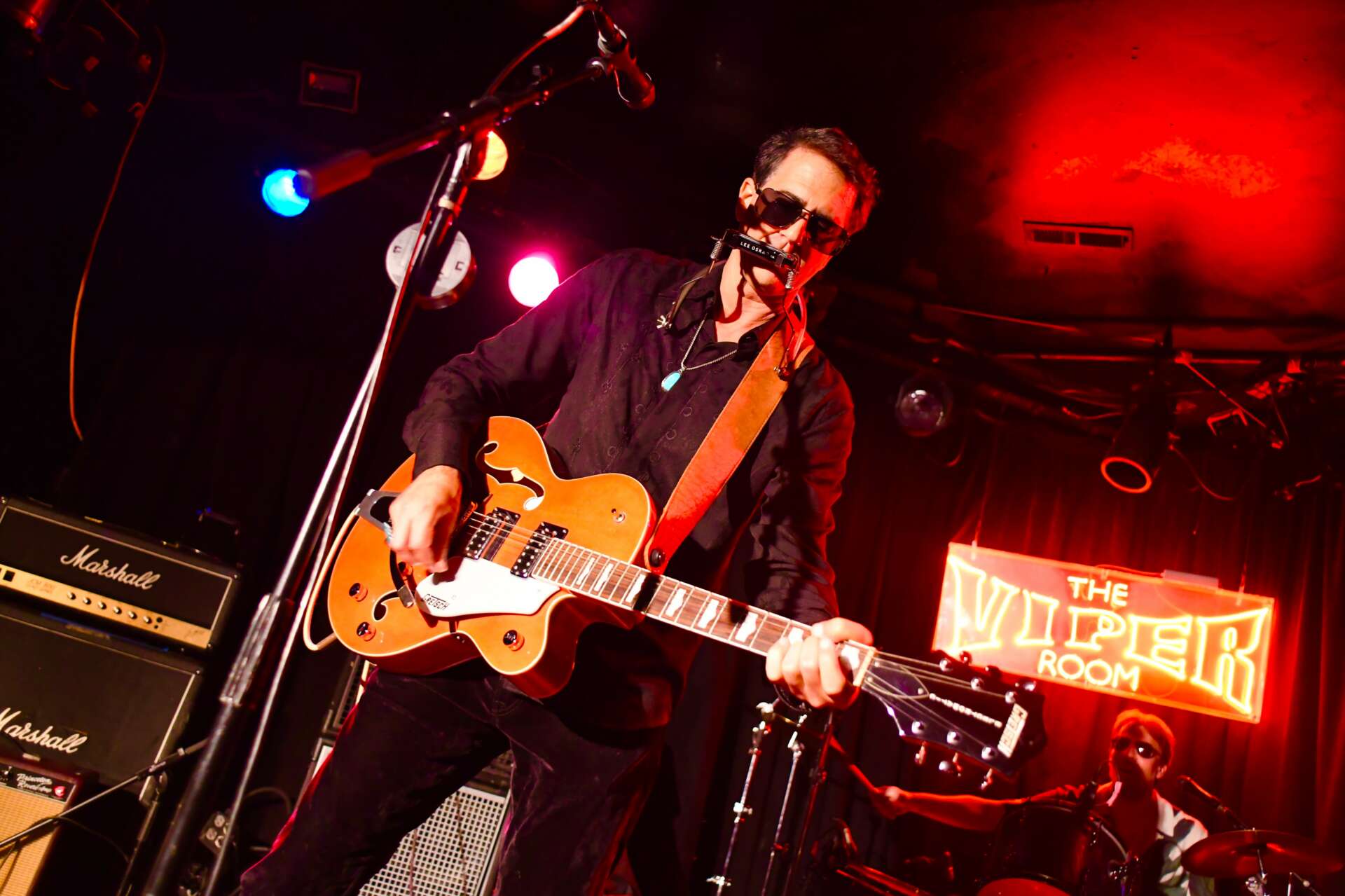
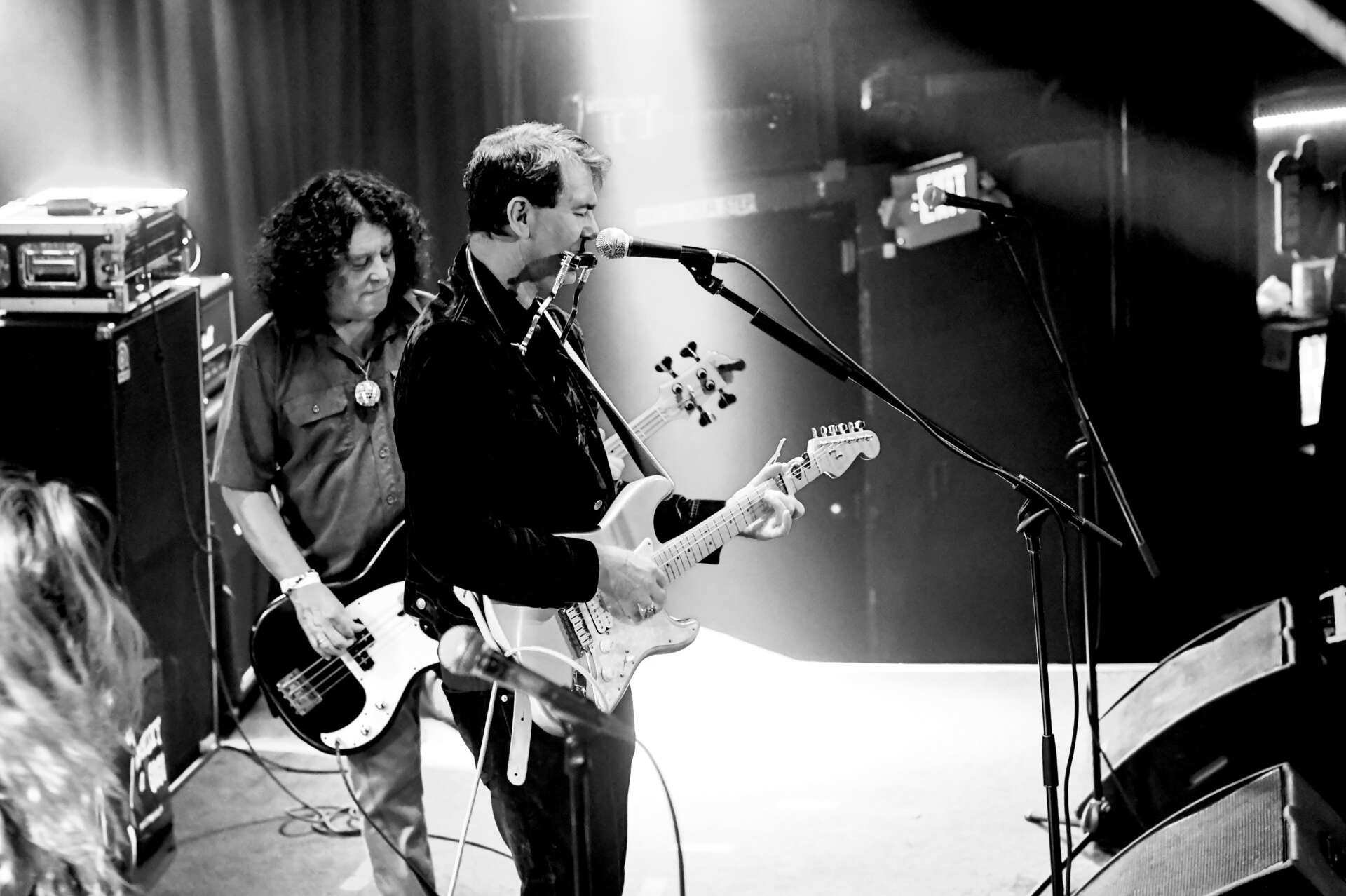
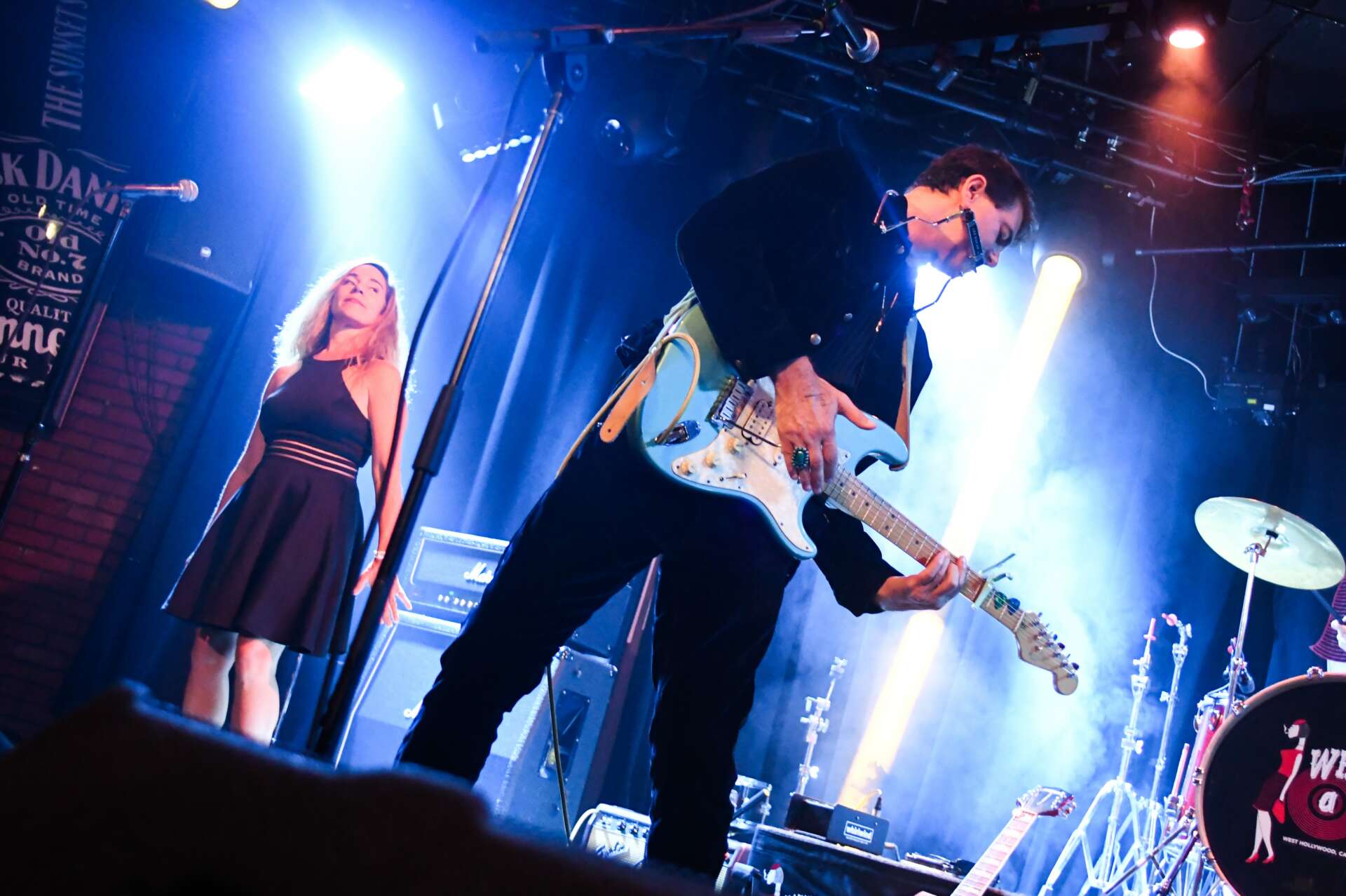
Contact Info:
- Website: https://www.jeffgreenleaf.com
- Instagram: https://www.instagram.com/jeffgreenleafmusic
- Facebook: https://www.facebook.com/pg/JeffGreenleafMusic
- Youtube: https://www.youtube.com/JeffGreenleafMusic
Image Credits
Mathias Fau Photography


